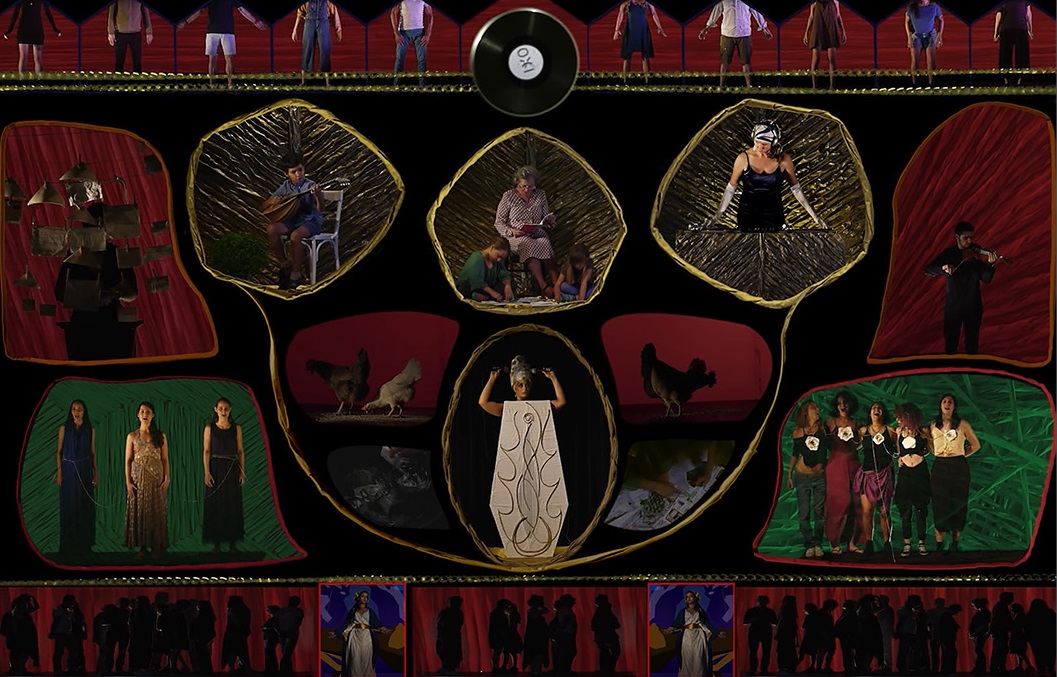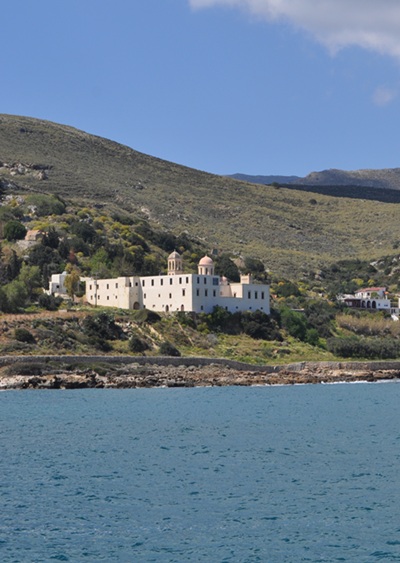
The EMST, fulfilling its role as a museum of national scope and as the country’s preeminent institution of contemporary art, begins a systematic collaboration with institutions and organizations in Greece and abroad. This new extroverted policy aims to contribute through collaborations to the further dissemination of contemporary visual culture and to exhibit works from the EMST collection within its walls and outside the capital.
In this context, the EMST, in collaboration with the non-profit Schwarz Foundation, presents the group exhibition HANDMADE: the social dimensions of craftsmanship at Art Space Pythagorion in Samos, curated by EMST’s Artistic Director, Katerina Grego. The exhibition features 9 artists from Greece and abroad and includes works from the Museum’s collection.
In recent years there has been a renewed interest in the field of contemporary art in works based on craftsmanship or handmade. The term “craftsmanship” refers to processes, actions, techniques and forms of creativity that are usually performed by hand or using hand-held devices. With the advent of the industrial revolution, the pressure for productivity, efficiency and low-cost mass production, handicrafts gradually became marginalised and in some cases disappeared altogether. Traditional techniques and know-how that had existed for generations were wiped out.
Today, many artists are returning to handmade practices and practices that involve creative materiality. One reason may be the increasing penetration of digital culture, the dominance of the intangible, computing and cognitive labour in contemporary life and the marginalisation of the tangible and tactile. A second reason is that in many countries craft has been associated primarily with women, the working class, and minorities-that is, with marginalized, non-dominant groups excluded from the realm of ‘high’ art and its orthodox or institutional historical narratives. Today the art-art opposition is being challenged, as the dominant narratives of history and art history, which dictated the rules of what belongs to “high art” and what does not, are being challenged. This, in many ways, explains the return of craftsmanship, which was once an integral part of artistic practice anyway.
However, while much of today’s craft-based practices focus on materiality, the form of said craft, or the exploration of tradition, this exhibition will focus on works that have an underlying social and political dimension, and will examine the social and political economies, contexts, and networks of relationships that lie at the core of craft practices and traditions. In many cases, craft becomes an integral part of collective empowerment, self-activity, knowledge sharing, the preservation or rewriting of history, and finally, a mound against historical amnesia. Thus, contemporary craft practices now become central to rethinking the politics of materiality, identity, labour and social exchange as they incorporate histories into their materials.
Participating artists.
The Schwarz Foundation is a non-profit foundation that aims to promote the exchange of ideas and practices between cultures and countries. In view of the significant changes taking place in Europe, which require new ways of thinking, the foundation’s initiatives aim to contribute to this process of reassessing and rethinking the continent, especially South-East Europe and its relationship with its surroundings. In this context, it launches and supports activities including music festivals, exhibitions, symposia, support for artistic activities, among many others. It is the Foundation’s strong belief that an understanding of the history and cultural traditions, as well as sensitivity to environmental issues within the South-Eastern Mediterranean region, can play a vital role in shaping the future of this historically important region.
Exhibition opening hours: Daily 10.00 – 13.00 and 19.00 – 24.00
Photo: Jennifer Nelson, Democracy is a Party, 2019, EMST Collection







Leave A Comment